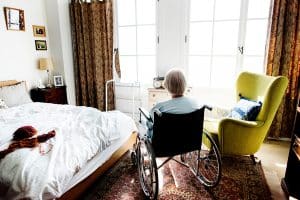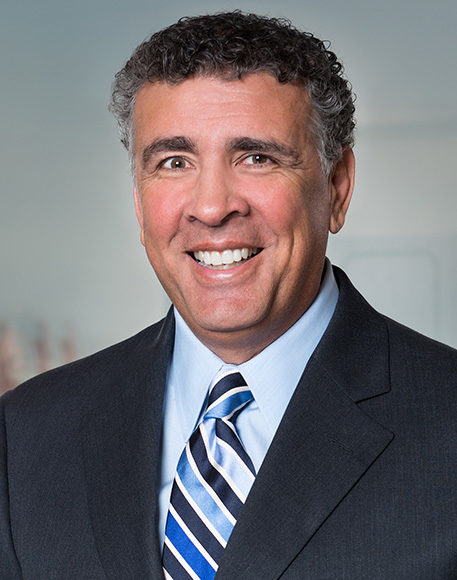The Dangerous Effects of Understaffing in Nursing Homes
 Some people may be under the impression that understaffing in nursing homes is a minor inconvenience, meaning that their elderly family member will simply have to wait a little longer to get the care and assistance that they need for the day. However, understaffing in nursing homes is actually a big issue with serious and dangerous consequences. Many of the negative issues occurring in nursing homes around the United States emerge from the understaffing problems.
Some people may be under the impression that understaffing in nursing homes is a minor inconvenience, meaning that their elderly family member will simply have to wait a little longer to get the care and assistance that they need for the day. However, understaffing in nursing homes is actually a big issue with serious and dangerous consequences. Many of the negative issues occurring in nursing homes around the United States emerge from the understaffing problems.
What does it mean for nursing homes to be understaffed and why is this an issue?
An understaffed nursing home means that the facility does not have enough workers or employees that it needs to help and assist with the residents’ daily needs. There may be various reasons for this, such as no one is looking for a job or turning in applications at the nursing home facility, the nursing home facility is not offering enough money to its employees or doesn’t treat them fairly, the employees are quitting in droves due to exhaustion and feeling overworked, or the nursing home intentionally keeps their facility understaffed to save money and cut financial corners.
When this happens, more workers must take on more responsibilities as the staff to resident ratio is very high. The more work they must complete in a day usually translates into residents getting less care, or poorer quality care, than they deserve.
The eight dangerous effects of understaffing in nursing homes
Understaffing in nursing homes can affect the quality of life as well as the type of care and assistance that a nursing home resident receives. If you have an elderly family member or loved one who is in a nursing home or who you are considering putting in a nursing home, here are eight dangerous effects of understaffing in nursing homes that you should know about:
- Residents are more prone to falls: If there are not enough employees at a nursing home, residents may be unable to get the help and assistance that they need, causing them to try to do things on their own. For example, your loved one may need to use the restroom and cannot get anyone to come to their room to help them. They may decide to get up and make their way to the bathroom by themselves. As a result, they fall and experience serious injuries, which could have been avoided if the nursing home wasn’t understaffed and more workers would have been available.
- Nursing homes may suddenly close: Due to a staffing shortage, your family member’s nursing home may suddenly close. This can cause chaos among you and your family as your loved one has nowhere to go. Now, you or another member of your family must stay home with your elderly family member, ensuring that their needs are met and that they are properly taken care of until you can find another nursing home facility that you trust.
- Residents may suffer from bedsores: Bedsores, also referred to as pressure sores, are small skin injuries that emerge when an individual is lying or sitting in the same spot for too long. Therefore, if the nursing home does not have enough employees to help your family member roll over or move into a new position while sitting or lying down, more bedsores are likely to appear. While this may sound like a minor issue, bedsores are actually very painful and can lead to serious infections.
- There may be more nursing home deaths: When there are not enough workers in a nursing home, the workers that they do have become overworked and exhausted from picking up the slack. As a result, mistakes and errors are common, resulting in more nursing home deaths. A study of shortages during the pandemic found that staffing shortages contributed to a 10.5% increase in fatalities of residents.
- Residents may have more emergency room visits and hospitalizations: Understaffing in nursing homes can lead to missed diagnoses of treatable conditions. This can lead to residents needing to visit the emergency room or stay in the hospital more often to get the required medical attention that they need.
- Residents may have poor hygiene: Residents may not be able to bathe themselves, brush their own teeth, wash their hands, or even comb their own hair. When these simple tasks are put off too long, it can cause an individual to have poor hygiene. This puts your loved one at risk of developing illnesses as well as diseases.
- More residents may suffer from dehydration, hunger, and lack of nutrition: Residents may not drink enough water or liquids throughout the day and possibly even miss important meals. Saline drips may go unfilled, and feeding tubes can become clogged. Unfortunately, this can lead to severe dehydration, hunger, and malnutrition, which can have serious consequences.
- There may be missed medications and newly developed illnesses or injuries: It is the nursing home employees’ responsibility to keep an eye out on the residents and ensure that they are thriving in the facility. However, if the nursing home employee to resident ratio is very high, there is a strong likelihood that the employees will forget to give your loved one their needed medications as well as fail to notice that they have developed a severe illness or injury. Charts may not be updated correctly, either, if staff is in a rush. When this happens, your loved ones’ illness, injuries, and health conditions may become worse, causing them to need emergency medical assistance right away.
If your family member or loved one was neglected due to understaffing in nursing homes, Garcia & Coman is here to help you. Nursing homes should always prioritize their residents’ health, care, and wellbeing. If they failed to do this, our nursing home neglect attorneys are ready and available to guide you through the legal process and ensure that the nursing home facility is held accountable for their negligent actions. To schedule your free, no-obligation consultation, please fill out our contact form today. We have office locations in Long Beach, Los Angeles, Phoenix, New Orleans, and Louisville for your convenience.

Stephen M. Garcia represents victims of elder and nursing home abuse and is known as one of the leading civil litigators in the country. He is Senior Partner at Garcia & Coman, where the firm’s practice is focused on elder abuse, nursing home abuse, and wrongful death of the elderly.
Find out more about Stephen M. Garcia

